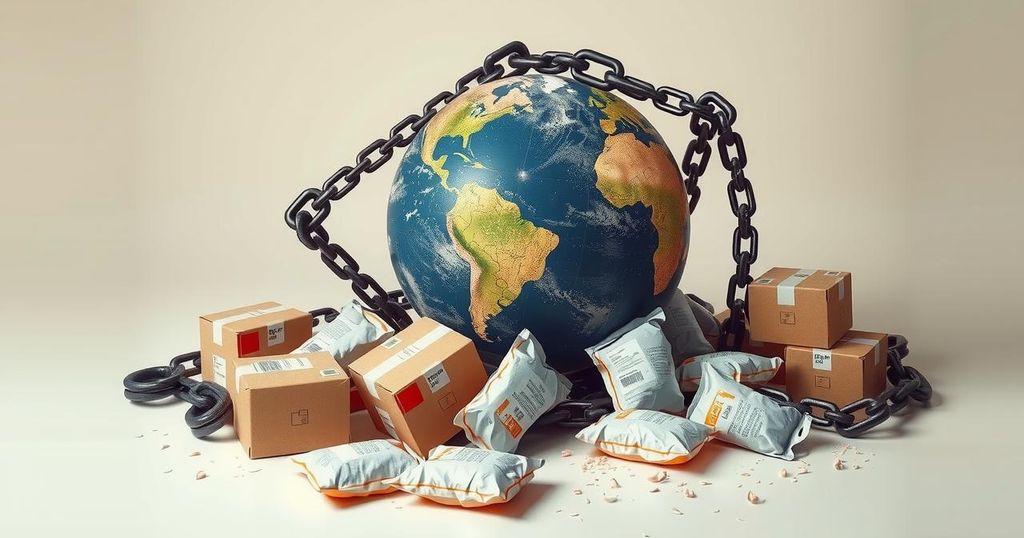Trump’s Cuts to USAID Generate Global Aid Concerns and Advocacy for Reform

The Trump administration aims to reduce funding for USAID, facing backlash from humanitarian groups. Key figures, including Elon Musk, criticize the agency, sparking fears of detrimental effects on global aid. Recent executive actions include freezing new funding and a push for restructuring, raising concerns about support for crises in Afghanistan and Ukraine.
The Trump administration’s plans to curtail funding for the U.S. Agency for International Development (USAID) have raised alarms among international humanitarian organizations. Following a series of executive actions aimed at cutting government spending, significant aid programs face potential cancellation, prompting fears of severe implications for millions dependent on aid, particularly in Afghanistan and Ukraine.
Elon Musk, a key strategist in the administration’s cost-cutting initiative, has labeled USAID as ineffective and even criminal, asserting that the agency perpetuates corruption. February 3 marks the closure of USAID’s headquarters, as reported by multiple sources, including CNN and the Associated Press, with President Trump calling for an overhaul to cleanse the agency of its current leadership.
Recent turmoil within USAID, highlighted by the placement of two senior officials on administrative leave, stems from their opposition against Musk’s oversight directives. The State Department, under Secretary Marco Rubio, has been instructed to freeze new foreign assistance funding, aiming to realign aid with the administration’s foreign policy priorities.
Trump’s executive order mandates a 90-day evaluation period for U.S. foreign development assistance, raising further anxiety among humanitarian organizations globally. There is a particular concern regarding aid to Afghanistan, with Norwegian Refugee Council Secretary-General Jan Egeland warning of disastrous outcomes for 22 million Afghans in need.
In response to the war in Ukraine, USAID has disbursed significant financial support. However, Trump has since criticized the level of aid provided under the Biden administration. Critics in Ukraine fear that cutting USAID funding could undermine civil society initiatives and diminish U.S. support for vital democratic reforms.
Some Ukrainian civil representatives advocate for USAID reforms, echoing the sentiment that while improvements are necessary, the agency has been instrumental in facilitating crucial social and infrastructural advancements. Additionally, Republican Congressman Brian Mast is pushing for a structural shift, suggesting that USAID could be integrated into the State Department manage effectively.
The senior Democrats in the Senate Foreign Relations Committee emphasized in their letter to Rubio that any merger or reorganization of USAID must receive Congressional approval as mandated by law. They stressed the importance of prior consultation with Congress regarding any intended structural changes.
The article discusses the Trump administration’s initiatives to downscale the U.S. Agency for International Development (USAID), amidst broader efforts to reduce federal spending. USAID is a principal body administering U.S. foreign aid, providing significant financial assistance to various countries in need, particularly in crisis situations like natural disasters or conflicts. Its funding and operations are under scrutiny by both the administration and Congress, raising concerns about impacts on global humanitarian efforts, especially in regions like Afghanistan and Ukraine.
The proposed changes to USAID under the Trump administration raise significant concerns among humanitarian organizations and lawmakers regarding the future of U.S. foreign aid. Experts warn of dire consequences for millions reliant on assistance in regions like Afghanistan and Ukraine, where support has been crucial amidst ongoing crises. The calls for reform and scrutiny of USAID underscore the importance of maintaining effective and responsible foreign aid programs aimed at fostering stability and support for democracy.
Original Source: www.rferl.org







